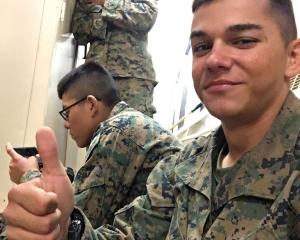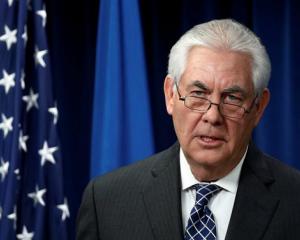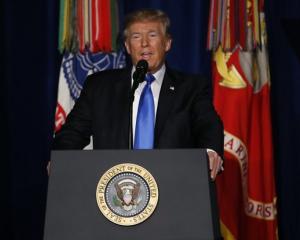Afghan President Hamid Karzai has condemned photographs of US soldiers posing with the mangled bodies of Afghan insurgent bombers as "inhuman", calling for a rapid transition from NATO to Afghan security to prevent more such incidents.
The pictures dealt a further blow to US-Afghan relations as Washington is trying to sign a strategic deal with Karzai on a presence in the country after the 2014 pullout of most foreign combat troops.
"The Afghan president emphasised that the only way to prevent such bitter experiences in the future is a quick and complete security transition from foreign forces," said a statement from Karzai's office.
"Afghanistan can take its destiny into its own hands very soon and in this country there will not be any bad actions by foreign troops."
Karzai called the two-year-old photographs, taken by US paratroppers in 2010, an "inhuman act" and said it was "disgusting" to pose in that way with dead bodies.
Ties between Karzai and his Western backers have been strained over a series of blunders, including US troops inadvertently burning copies of the Koran, as well as the killing of 17 villagers for which a US soldier was charged.
Those incidents have helped fuel anti-Western sentiment in the country ahead of a crucial May meeting in the US city of Chicago to discuss the future size and funding for Afghan security forces beyond the 2014 NATO exit deadline.
The Afghan Taliban, who claimed responsibility for brazen weekend attacks in Kabul and three other provinces, vowed revenge against US forces fighting in the country after the pictures were published in the Los Angeles Times newspaper.
"They will be punished for their actions and we will take revenge. When and how is up to our military officials, (but) it will be added to our plans," Taliban spokesman Zabihullah Mujahid told Reuters by telephone.
WASHINGTON DENOUNCES BEHAVIOUR IN PICTURES
US officials quickly condemned the behaviour seen in the pictures published on Wednesday, which included a photo of American soldiers posing with a dead insurgent's hand with the middle finger raised.
In one of the photos, a US paratrooper posed next to an unofficial patch placed beside a body that read "Zombie Hunter," while in another photo soldiers posed with Afghan police holding the severed legs of an insurgent bomber.
Apologies from Washington did little to quell Taliban ire, with Zabihullah trying to stoke so-far muted Afghan public reaction against police seen standing with the Americans.
"Such photos by the invader Americans are not something new, but what looks new in these photos is the Afghans looking like slaves, standing beside their invader masters and making fun of corpses," he said.
US Defence Secretary Leon Panetta on Wednesday said he regretted the Times' decision to publish the photos, which he said might trigger retaliatory violence against foreign soldiers in Afghanistan.
But Afghan Defence Minister General Abdul Rahim Wardak, attending a meeting of NATO allies and partners in Brussels, said he did not expect a widespread backlash.
"I think these pictures were not as graphic as some in the past. So I doubt it will create a reaction that will cause attacks on international forces," said Wardak.
Insurgents this week launched a coordinated assault on four provinces, targeting diplomatic and government areas of Kabul with rockets and gunfire in what they said was retaliation for incidents involving US soldiers.
The attacks - the start of the traditional summer fighting months - showed the insurgency's continued strength nearly 11 years since the militant group was ousted from power.
America's ambassador to Afghanistan said in a briefing to Afghan media that there was "no question" the Haqqani network, one of the most feared insurgent groups in the country, was behind the attacks.
Ryan Crocker called on neighbouring Pakistan to crack down on what he called Haqqani safe havens in Pakistani territory, reiterating longstanding US demands that have strained ties between the strategic allies.
"We know where their leadership lives and we know where these plans are made. They're not made in Afghanistan. They're made in Miram Shah, which is in North Waziristan, which is in Pakistan," Crocker said.
The Haqqani, while smaller in numbers than the Taliban, pose one of the biggest challenges to Afghan security forces ahead of NATO's combat troop departure, having proved repeatedly their ability to put together sophisticated attacks.
The United States has urged Pakistan's military to launch an offensive in North Waziristan to go after the Haqqanis. Pakistan says it is already stretched fighting homegrown Taliban militants elsewhere near the Afghan border.
Afghan security officials expect this year's fighting season to be more bloody than last year's as NATO troops hand over more security responsibility to Afghan forces before the pullout.












